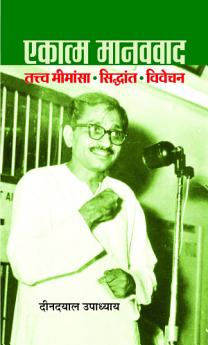Deendayal Upadhyay was a key figure in Indian Political Thought, known for his seminal work on Ekatm Manavvaad, also recognized globally as Integral Humanism. This Deendayal Upadhyay authoritatively presents a unique perspective on Indian Philosophy and Indian Economic Thought. His Deendayal Upadhyay Writings offer a profound Critique of Capitalism Socialism, arguing against their fragmented and materialistic views. Instead, he champions a Human Centered Economy and a Decentralized Economy India, emphasizing Swadeshi Movement principles and Appropriate Technology India. The book explores the Dharma concept India as the foundational principle, distinct from Western religion, guiding the pursuit of the Purusharthas Indian Philosophy – Dharma, Artha, Kama, and Moksha. Upadhyay delves into the complex Individual Society Relationship India, viewing them as integral parts of a larger whole. He articulates a powerful vision for Nation Building India, introducing concepts like Chiti Soul of Nation and Virat National Power. Addressing key challenges of Post Independence Indian Politics, he provides an Economic Planning India Critique and contrasts the ideas of Gandhi vs Western Ideologies. His insights connect Ancient Indian Wisdom Modern Context, advocating for Holistic Human Development and Social Justice India Thought through measures like Minimum Living Standards India and Employment Generation Policy India. The work discusses the relationship between State and Dharma India, contrasting the ideal Dharma Rajya Concept with the Theocratic State vs Dharma Rajya, and includes a noteworthy Indian Constitution Critique Upadhyay. Upadhyay's philosophy promotes a Duty Based Society India and highlights the importance of National Integration India. This book is essential for understanding Integral Philosophy India and the potential for an Indian Alternative Economic Model grounded in Indian Culture Thought, emphasizing values like Trusteeship Property Ownership, responsible Labor Capital Relationship India, Moral Basis of Economics, Nature and Human Harmony, and contributing to World Peace Indian Thought. It underscores the connection between Swaraj and Swasanskriti and draws upon the vast Indian Knowledge Tradition, referencing concepts like the Kathopanishad Philosophy and the conquest of the Six Enemies of Man. This deep analysis provides insights into the Vyasti Samasti Relationship, the Rule of Law India Ancient, and the broader landscape of Post Colonial Indian Thought.






